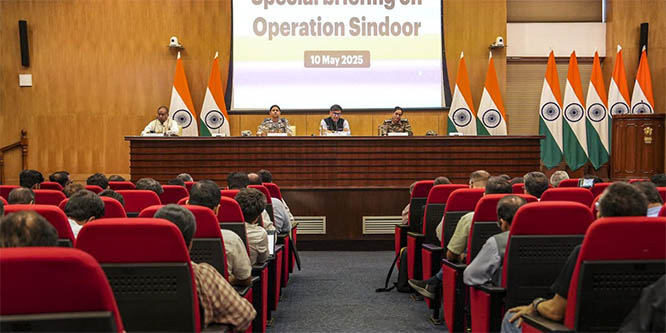
New Delhi, Sept 19: India on Tuesday summoned Canadian envoy Cameron MacKay to inform him of the government’s decision to expel a “senior Canadian diplomat” in response to Ottawa’s expulsion of an Indian official over the death of Khalistani leader Hardeep Singh Nijjar.
The move marked a further deterioration in bilateral relations, which are currently in tatters over the Canadian side’s response to India’s concerns over the activities of pro-Khalistan elements operating from Canadian soil.
“The High Commissioner of Canada to India was summoned today and informed about the decision of the Government of India to expel a senior Canadian diplomat based in India. The concerned diplomat has been asked to leave India within the next five days,” the external affairs ministry said in a brief statement.
Unlike the Canadian side, the statement did not name the Canadian diplomat being expelled.
People familiar with the matter said Olivier Sylvestere, the Canadian intelligence agency station chief in India, was the official asked to leave the country.
“The decision reflects Government of India’s growing concern at the interference of Canadian diplomats in our internal matters and their involvement in anti-India activities,” the statement said, without giving details.
India has already rejected Canadian Prime Minister Trudeau’s contention that there are “credible allegations of a potential link” between Indian government agents and the killing of Nijjar in June, describing the claim as “absurd and motivated”.
Soon after Trudeau spoke on the matter in Canada’s Parliament, foreign minister Mélanie Joly announced the expulsion of a “top Indian diplomat”. Joly’s office later identified the official as Pavan Kumar Rai, head of the Research and Analysis Wing (RAW) in Canada, according to public broadcaster CBC.
People familiar with the matter had earlier said on condition of anonymity that India was expected to expel a Canadian official as a response. It is not unusual in international diplomacy for such expulsions by one country to be responded to by the other country with a tit-for-tat measure.
With the Indian Parliament holding a special session, external affairs minister S Jaishankar is expected to make an official statement in the House on the matter, the people said.
India-Canada relations have been at an all-time low for some time now, largely because of New Delhi’s anger over Ottawa’s perceived indifference to the activities of pro-Khalistan elements. These elements have incited violence against Indian diplomats, including putting the officials’ photos and other details on posters, and targeted Indian diplomatic facilities several times in recent years.
Canadian diplomats, including the high commissioner in New Delhi, have been summoned to the external affairs ministry in the past for formal protests over the activities of Khalistani elements.
In June, the Indian government was particularly angered after a float at a pro-Khalistan rally in Toronto depicted the assassination of former premier Indira Gandhi in a gory manner and eulogised her killers.
Several efforts in recent years to reset India-Canada relations have run aground over the Canadian side’s persistent stance that the activities of pro-Khalistan elements are covered by the freedom of expression guaranteed to Canadian citizens.








Comments
Add new comment